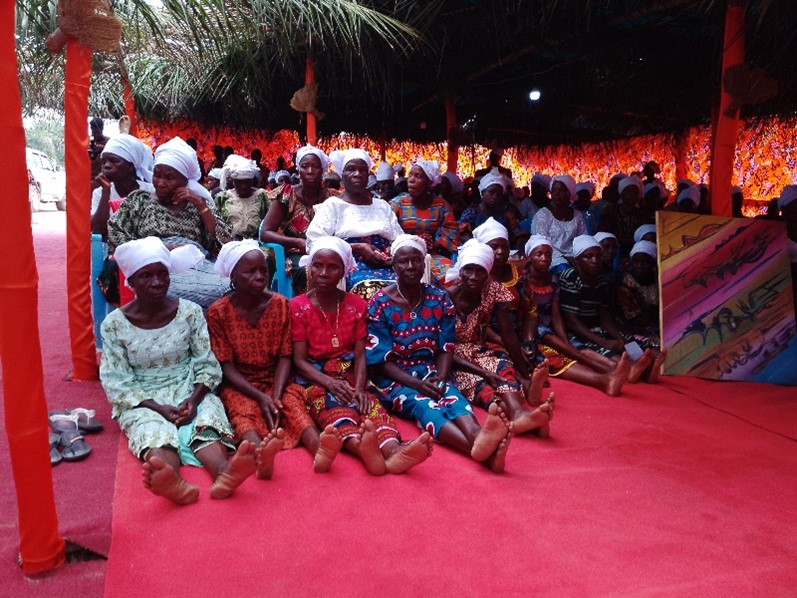In Nimba County, Liberia, traditional women are expressing their discontent with the recent replacement of Cultural Ambassador Juli Endee, threatening to resume Female Genital Mutilation (FGM) practices if their demands are not met. Endee, a prominent cultural figure, was replaced by Kekula Kamara, a well-known artist from a popular 1980s television drama. The traditional women feel a strong connection to Endee, seeing her as a vital link to their cultural identity and practices. Their grievances have been amplified by the perception that the new administration under President Joseph Boakai is favoring individuals from his home county of Lofa over the people of Nimba, igniting feelings of marginalization and frustration.
During a recent gathering, hundreds of these women voiced their concerns and made it clear that they consider Juli Endee their “daughter” and advocate. They have threatened to take drastic measures, including erecting roadblocks and resuming FGM across all 19 districts in Nimba County. The issue of representation in the new government is particularly salient for them, as they believe that despite voting for the Unity Party, their voices and needs are being overlooked. This sense of betrayal has fueled their determination to take action, including a protest involving traditional masked dancers, a key aspect of their cultural expression.
The threat of returning to FGM practices poses a significant challenge to ongoing efforts to combat this harmful tradition. FGM has been widely condemned by various organizations and is considered dangerous and detrimental to women’s health and rights. Over the past year, various international bodies, including UN Women and the United Nations Population Fund, have worked with traditional leaders to move away from such practices. However, the women of Nimba feel that without their cultural ambassador, their interests are not being adequately represented, potentially risking the progress made in curbing FGM.
The traditional women’s group, led by representatives such as Oretha Bartuah and Edith Suah, has indicated their intent to draw attention to their plight, not just from the government but also from the global community. They believe their collective voice will urge authorities to reinstate Ambassador Endee. The symbolism of the female masked dancer, who they propose to bring to the Executive Mansion, reflects their deep cultural roots and highlights the significance of tradition in their lives. Their demands have arisen from a perceived injustice following the election, showcasing underlying tensions regarding resource allocation and representation.
As discussions surrounding FGM evolve, the implications for young girls and women within these communities remain critical. The traditional women have indicated plans to recruit young girls for the “bush school,” where FGM is performed, significantly threatening efforts to end the practice. The prospect of resuming FGM raises alarms among advocates working to eliminate such harmful traditions, as it reflects a cultural conflict between modern legal frameworks and longstanding practices deeply embedded in the social fabric.
Despite the weight of their statements, there has been no response from the Nimba administration. The silence raises questions about how local and national governmental structures can engage meaningfully with traditional practices while promoting public health and women’s rights. As the situation unfolds, it will be crucial to monitor the developments in Nimba County and the broader implications for women’s rights and cultural practices in Liberia, particularly in the context of a government’s responsibility toward its constituents and the challenges of balancing tradition with progress.


